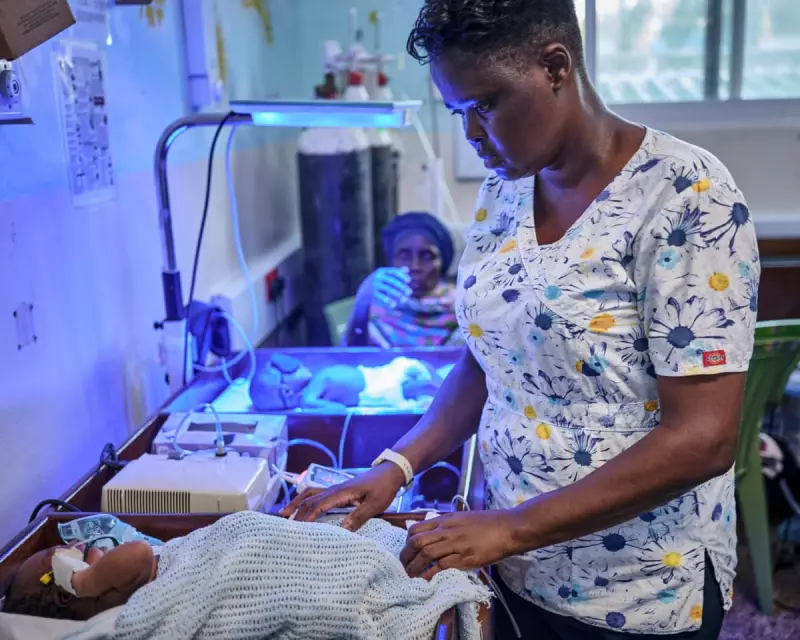
Global Fight Against Newborn Sepsis Takes Promising Turn in Kenya
In a modest hospital just minutes from the picturesque shores of Kenya's Kilifi Creek, far removed from the tourist trails, a medical revolution is quietly unfolding. The NeoSep1 clinical trial, spearheaded by the Kenya Medical Research Institute (Kemri), represents a beacon of hope in the global battle against neonatal sepsis - a life-threatening infection claiming approximately 800,000 newborn lives each year worldwide.
The Silent Killer: Sepsis and Antibiotic Resistance
Newborn babies face particular vulnerability to sepsis due to their underdeveloped immune systems struggling to combat pathogens. The situation is especially dire in Africa, where sepsis accounts for 28% of all neonatal deaths. The crisis has been exacerbated by growing antibiotic resistance, with drug-resistant infections now causing up to 214,000 newborn deaths globally each year.
Christina Obiero, principal investigator at Kilifi County Hospital, explains the core challenge: "Many newborns die because recommended antibiotics no longer work effectively. The pathogens have evolved resistance over years of treatment."
NeoSep1: A Novel Approach to an Old Problem
The Global Antibiotic Research and Development Partnership (GARDP) leads this innovative trial running across eight countries: South Africa, Kenya, Ghana, India, Bangladesh, Pakistan, Malaysia and Vietnam. By 2029, the study aims to enrol 3,000 babies, including 600 neonates across three Kenyan clinics in Mombasa, Nairobi and Kilifi.
Rather than developing expensive new antibiotics - a slow and costly process - researchers are taking a smarter approach. They're repurposing existing drugs that have been available for decades but never used in Africa for sepsis treatment.
Sally Ellis, GARDP's children's antibiotics programme leader, reveals the scale of the problem: "Our 2023 study found more than 200 different antibiotic combinations being used globally to treat neonatal sepsis. This variety actually encourages bacteria to become resistant."
Old Drugs, New Hope
The trial's most significant innovation involves testing two antibiotics that have been available since the 1970s and 1980s but never deployed against sepsis in Africa: fosfomycin and flomoxef.
"Fosfomycin is widely used in Europe for urinary tract infections, while flomoxef has been used almost exclusively in east Asia," Ellis explains. "Now that these drugs are generic, they've become much more affordable. We're essentially repurposing them to save newborn lives."
Researchers have narrowed down treatment options to eight antibiotic combinations, including first-line treatments, second-line options, and newer combinations like fosfomycin paired with flomoxef.
Racing Against Time
In the high-dependency unit at Kilifi County Hospital, the medical team understands the critical nature of timing. Sepsis can develop suddenly, and a newborn's condition can deteriorate within seconds, making rapid response essential.
Robert Mwakesi, manager of the Kemri-Wellcome Trust Research Programme laboratory, highlights the diagnostic challenge: "Identifying which bacteria affects a baby can take about five days from when the blood sample is taken until we obtain laboratory results."
Alexander Makazi, NeoSep1 study coordinator at Kemri, describes their method: "We exposed bacteria to a panel of different antibiotics. If the bacteria couldn't spread, we knew that specific drug was effective."
Towards a Global Solution
In Africa, NeoSep1 operates as part of a five-year project called Snip-Africa, bringing together health professionals from multiple sectors. The ultimate goal is clear: rank the eight antibiotic combinations to determine which are most effective and safest for each newborn presenting with sepsis.
"Once we have the ranking results, we aim to inform the World Health Organization and national governments to revise existing treatment guidelines," says Obiero. "Beyond identifying the best option for each infection, we want to minimise exposing babies to unnecessary antibiotics, because that's what ultimately drives resistance."
Makazi recalls a poignant moment that underscores their mission's importance: "The look on a mother's face when she saw improvement in her sick baby - now strong enough to breastfeed - was incredibly moving. Moments like these remind us our work truly makes a difference."
As this pioneering research continues, the medical community watches with hope that these repurposed drugs might finally turn the tide against one of the greatest threats to newborn health worldwide.






